China Daily's Top 10 List Includes Authors Like Mo Yan, Liu Liu, And The Late Eileen Chang#
It's the time of year for a final burst of top ten lists, and today China Daily duly posted their top books of 2009, including some authors -- like Mo Yan -- notorious among Chinese readers but little known outside of the country, and others -- like John Naisbett -- holding the opposite distinction. The full book descriptions, and more information, can be found on the original site.
The Top 10, as chosen by China Daily. Click images for purchasing info:
1. King Gesar (格萨尔王), by Alai#
Known as the world's longest epic, King Gesar is an ancient Tibetan story about the legendary King Gesar's birth, fight against evil and return to heaven. Tibetan author Alai joined the worldwide Myth Series project, initiated by British publisher Canongate Books, to retell the legend, some five years ago.
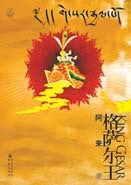
The author spent several years journeying in the areas where Tibetans believe King Gesar once lived. He also visited folk storytellers - farmers or herders, who wake up from a dream and suddenly begin telling the story of the King.
2. Frog (蛙), by Mo Yan#
This is another iconic work by Mo Yan, one of the most important and prolific writers in today's China. The bold novel is destined to become a classic as it deals with the sensitive topic of the family planning policy.
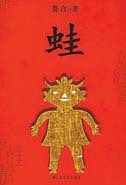
Mo says he has built "a lab of human nature" where he subjects the characters to extreme circumstances in order to determine what is the essence of humanity. In this novel, the protagonist is based on Mo's aunt, a countryside doctor who delivered Mo and thousands of others and carried out the family planning policy.
3. Little Reunion (小团圆), by Eileen Chang#
Viewed by many critics as a classic, the largely autobiographic novel was published 14 years after the reclusive writer's death. It depicts Chang's relations with her family members and the bitter love story involving her first husband Hu Lancheng, a collaborator for the Japanese during World War II.
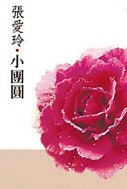
Best known among non-Chinese readers for Lust, Caution (色戒), on which Ang Lee based his award-winning film, Chang provides sharp insights into people's personalities. Hsia Chih-tsing, a retired professor of Chinese at Columbia University, calls her the most gifted Chinese writer to emerge in the 1940s and compares her with writers like Flannery O'Connor and Franz Kafka.
4. China's Megatrends: The Eight Pillars of a New Society (中#
国大趋势), by John Naisbitt and his wife Doris#
World-leading futurist John Naisbitt wrote his bestseller Megatrends in 1982. It has since become one of the biggest successes in the publishing world, selling more than 9 million in 57 countries.
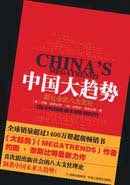
At this September's Beijing International Book Fair, the Chinese version of China's Megatrends caused a stir as the Naisbitts analyzed China from eight aspects - eight pillars of a new society. From the liberation of people's thoughts, the Naisbitts look at the rise of China's economy, society, culture, international relations and its efforts to establish sustainable development.
5. Zhu Rongji's Answers to Journalists' Questions (朱镕基答记者问)#
Zhu Rongji, 81, China's premier between 1998 and 2003, is back in the limelight with a hot-selling collection of his comments from domestic and international press conferences.
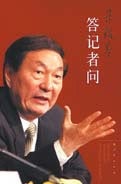
"Whatever lies ahead, be it a field of landmines or unfathomable abyss, I will exert all my efforts and contribute all my best to the country," is one of the former premier's iconic phrases.
The book has sold more than 1 million copies since the People's Publishing House started publishing it in September.
6. Yuan Weimin and China's Sports (袁伟民与体坛风云), by Yuan Shan#
This memoir from Yuan Weimin, former president of the General Administration of Sport of China, has caused much controversy, as it not only recalls moments of glory and pride, but also lifts the lid on an array of buried stories.
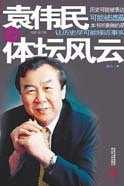
The book reveals China's journey to the Olympic Games, anti-doping incidents and controversies about He Zhenliang, former vice-president of the International Olympic Committee.
7. When the Sound of Color Tastes Sweet (当彩色的声音尝起来是甜的), by Science Squirrels club#
Acclaimed as the "funniest science book" of the year, the work has 54 articles carefully selected from thousands of posts by "squirrels" at the Science Squirrels club (songshuhui.net). Ji Shishan, who has a PhD in neurobiology, founded the club in 2007.
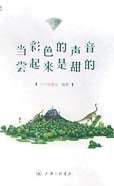
The Science Squirrel club website gets 50,000 hits a day and has attracted more than 90 young talents to the community of popular science writing, lectures and parties.
8. Dwelling Narrowness (蜗居), by Liu Liu#
This is a novel that has swept the Chinese book market in the closing two months of the year with its realistic portrayal of the lives and struggles of young urbanites, in the face of soaring housing price.
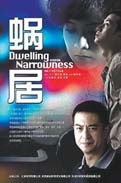
The novel centers on the lives of two sisters caught in the spiral of rising housing prices in Shanghai. There is Guo Haizao, who, under financial pressure, sacrifices love to become the mistress of a married government official, and Guo Haiping, whose life is a desperate struggle to own an apartment of her own.
9. Our Taiwan in These Years (我们台湾这些年), by Liao Hsin-chung#
Liao Hsin-chung, a Taiwan office worker in Shanghai, surprised many with a collection of his anecdotes, first posted on Tianya, an online community.
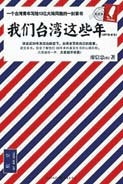
Cross-Straits ties have improved significantly in recent years and the mainland is now the second-largest source of tourists to the island after Japan. As a result, a new wave of mutual interest is growing. Liao's book, which looks at the last three decades in Taiwan, from the point of view of an ordinary resident, has tapped into this growing interest.
10. No Monuments (无碑), by Wang Shiyue#
Time magazine has named the Chinese worker as "person of the year" for 2009. Wang Shiyue's new novel delves into the lives of migrant workers. Born in 1972, Wang draws on his own experience as a worker in Guangdong province for more than 20 years, to give an intimate account of the huge social changes he witnessed.
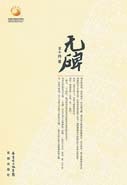
U8VDZGEA2Y3K